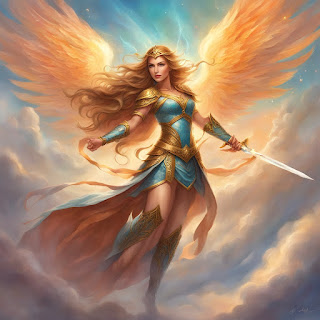Why everyone should read fantasy books?
Fantasy books hold a unique and enduring charm that captivates readers across the globe. As portals to realms filled with magic, mythical creatures, and epic adventures, these books offer more than mere escapism. Here are several compelling reasons why everyone should read fantasy books:
1. Imagination Unleashed:
Fantasy books stretch the boundaries of imagination, inviting readers into worlds where the impossible becomes possible. The genre encourages creative thinking and fosters a sense of wonder, allowing readers to envision realities beyond the constraints of the everyday.
2. Escape from Reality:
In a world often marked by stress and routine, fantasy books provide a welcomed escape. They transport readers to faraway lands, introducing them to characters and cultures vastly different from their own. This escape allows for mental relaxation and a temporary respite from the challenges of daily life.
3. Exploration of Complex Themes:
Beneath the magical façade, fantasy books often explore profound and complex themes. Whether it's power, morality, love, or identity, these stories use fantastical settings to delve into universal human experiences, offering readers a fresh perspective on timeless issues.
4. Character Development:
Fantasy literature frequently features rich character development. From unlikely heroes to formidable villains, readers encounter a diverse array of characters navigating challenges and evolving over the course of the narrative. This exploration of character adds depth and relatability to the fantastical worlds created by authors.
5. Morality and Ethical Dilemmas:
Fantasy worlds are fertile ground for exploring moral and ethical dilemmas. Authors often weave intricate plots that force characters—and by extension, readers—to confront difficult choices. These narratives provide a safe space for readers to reflect on their own values and beliefs.
6. Sense of Wonder and Magic:
The fantastical elements in these books infuse a sense of wonder and magic into the reading experience. Whether it's encountering mythical creatures, witnessing extraordinary feats, or exploring enchanted landscapes, fantasy literature offers a sense of awe that reignites the childlike joy of discovering the extraordinary in the ordinary.
7. Cultural Exploration:
Many fantasy books draw inspiration from diverse cultures and mythologies. Readers can explore and appreciate the richness of different traditions, gaining insights into folklore and legends that might be unfamiliar to them. This cultural diversity fosters a broader understanding of the world.
8. Hope and Resilience:
Fantasy often explores the triumph of good over evil, the resilience of the human spirit, and the enduring power of hope. These themes resonate deeply with readers, providing inspiration and a reminder that even in the darkest times, there is potential for light and redemption.
9. Community Building:
Fantasy books often cultivate communities of dedicated fans. Whether through book clubs, online forums, or conventions, readers of fantasy literature find a sense of belonging and shared enthusiasm. The genre fosters a community that celebrates creativity and a shared love for the fantastical.
10. Endless Variety:
The breadth of the fantasy genre ensures that there is something for everyone. From high fantasy epics to urban fantasy, fairy tale retellings to magical realism, readers can explore an incredibly diverse range of sub-genres, ensuring that there is always a new and exciting world waiting to be discovered.
In essence, reading fantasy books is not just a form of entertainment but a journey into realms that spark the imagination, challenge the mind, and resonate with the deeper aspects of the human experience. It is an invitation to explore the extraordinary, embrace the unknown, and, in the process, discover more about ourselves and the world we inhabit.




Comments
Post a Comment